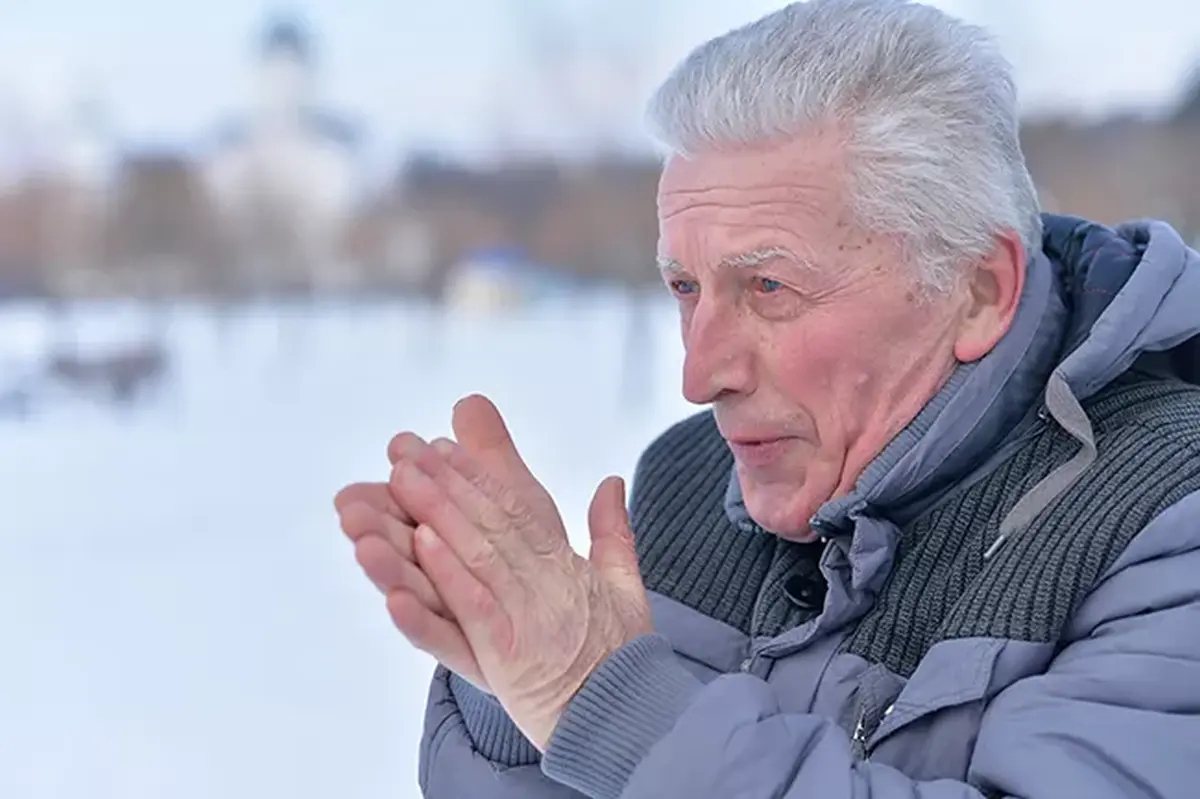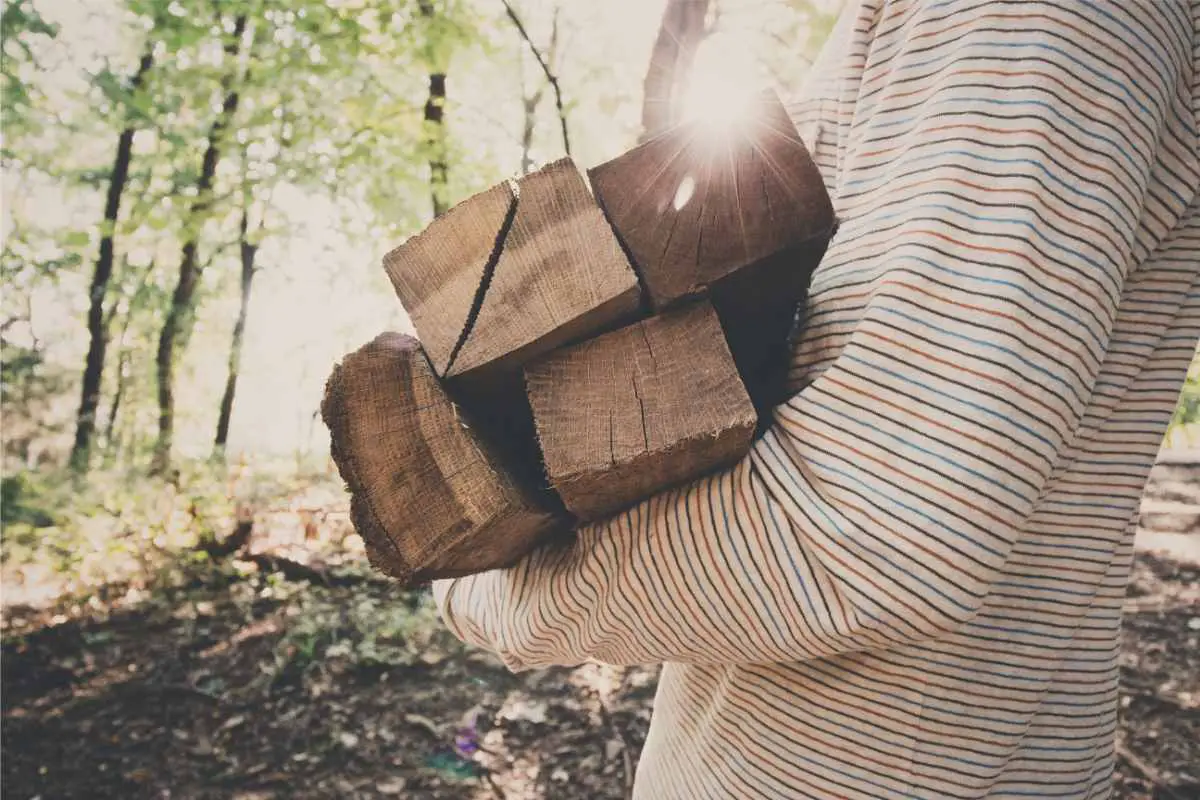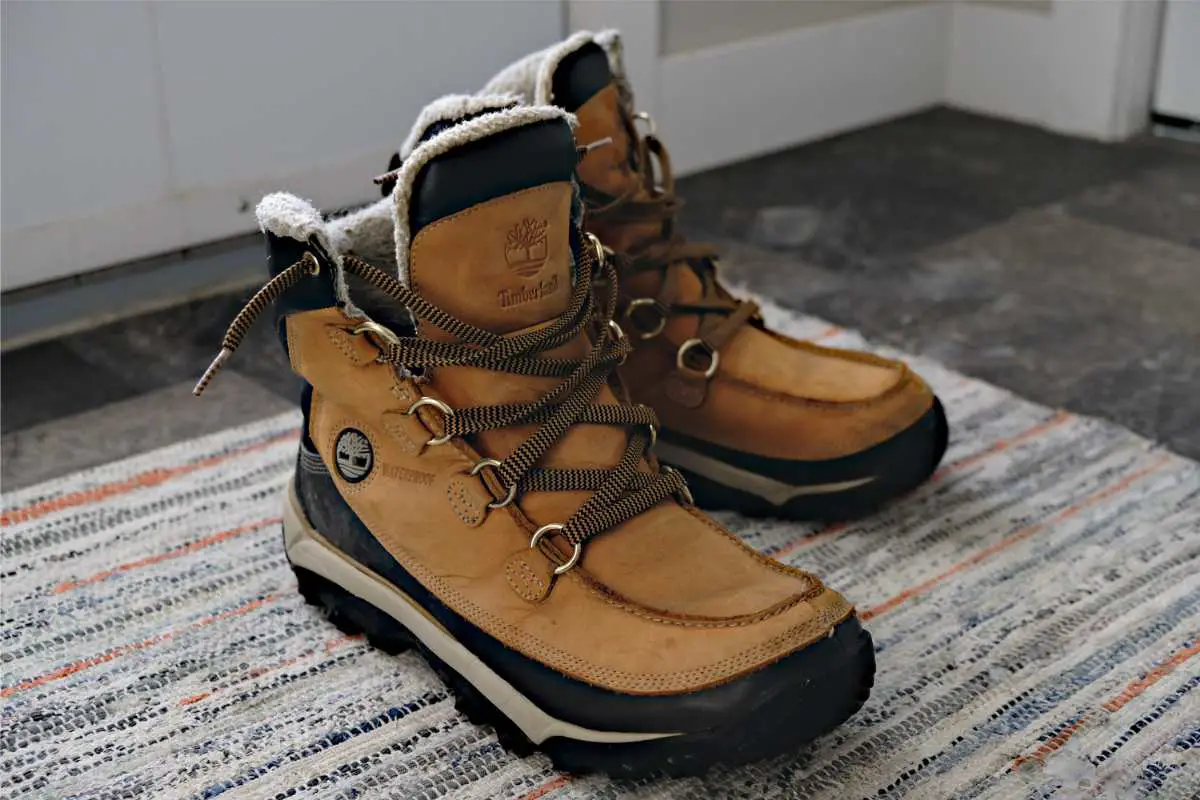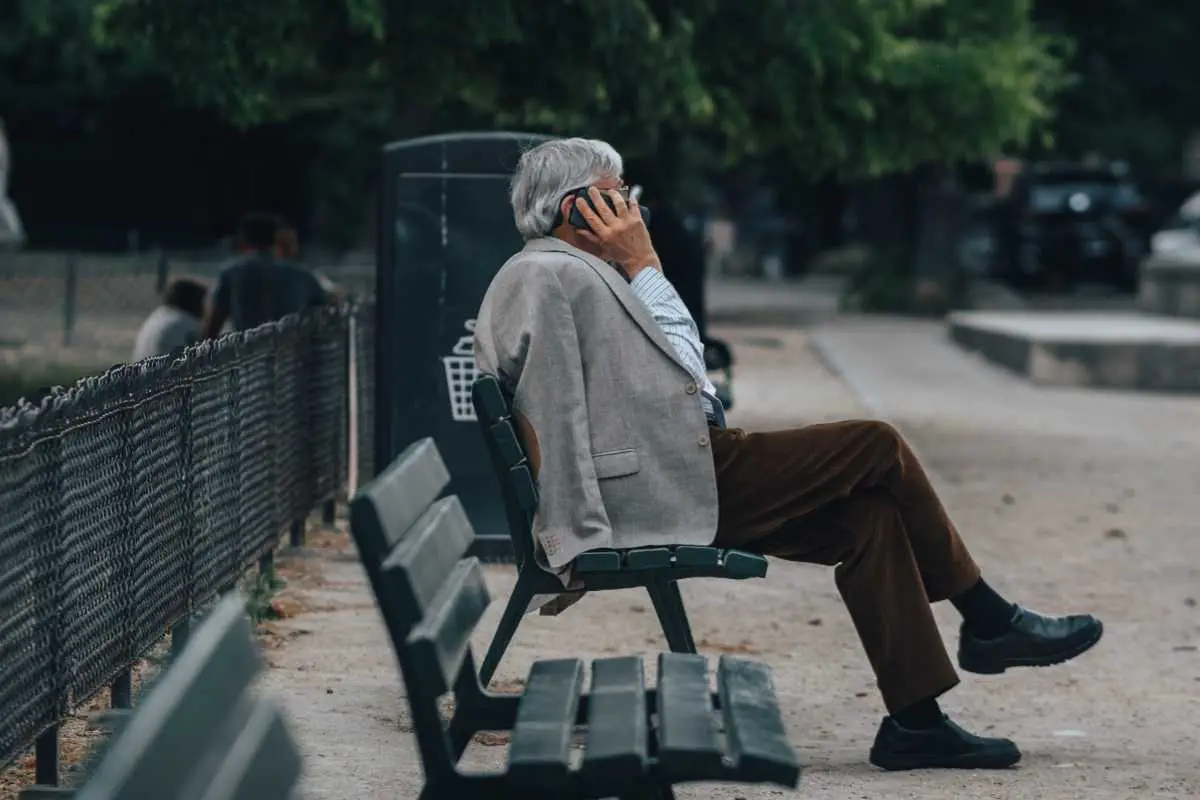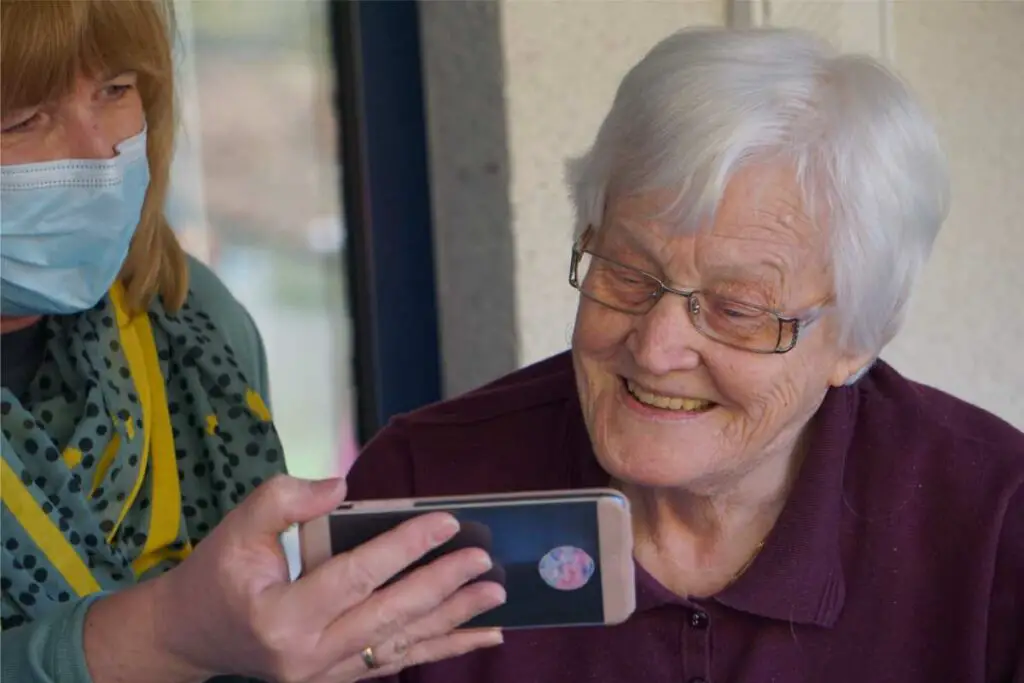It’s important to make sure that the older adults in your life are prepared to have a safe and healthy winter. It doesn’t take much effort and the result can be peace of mind for you and your loved ones, knowing that winter can be challenging for anyone, particularly for older adults.
Below are five tips for cold weather safety precautions that you can do before and throughout the winter.
1 – Be Prepared for Emergencies
While this is a generally good rule of thumb for all of us, it is particularly important for older adults. Winter storms and extremely cold temperatures can make traveling near impossible, create multi-day power outages, and cause social service agencies to cancel their services. Preparing for emergencies includes:
- Having plenty of batteries and flashlights on hand and easily accessible
- Making sure there are a few extra days’ worth of prescription medications and cold medicines available
- Putting together a simple first-aid kit
- Storing at least three days’ worth of food and water
- Keeping an easy-to-use cell phone available along with a list of important phone numbers
- Developing an emergency plan in case of power outages so that your loved ones do not panic, and know what to do and what to expect
For more winter safety tips for preparing for winter emergencies, visit the federal Centers for Disease Control’s website covering the topic.
2 – Make it Safe and Cozy
Set the thermostat to at least 68-70 degrees to avoid a cold house. If the home is old or hard to keep warm, consider closing off areas that aren’t used regularly. You can also lay towels underneath drafty doorways. Consider adding caulking or weather stripping to windows for more insulation. Blinds and curtains can also help with keeping it warm inside. Add a few extra blankets on the bed, and on a frequently used couch/chair. Make sure your pajamas are warm enough for winter nights, or wear long underwear.
Don’t forget to install and/or test smoke and carbon monoxide detectors—fireplaces, gas heaters, and lanterns can lead to carbon monoxide poisoning, making winter a particularly important time of year to have functioning detectors. The colder months also when house fires are more likely to happen, due to the use of space heaters, candles, or electric blankets that can overheat.
If heating bills are a concern for your loved one, visit LIHEAP, which can offer assistance with heating costs.
3 – Take Care of the Outside
This means installing proper outdoor lighting, lining up a plow guy or a trusted friend or neighbor to help with snow removal, and being sure that cane tips are in good shape. Slipping on ice is never fun, and for elderly individuals, it can be extremely dangerous, so it is crucial to be sure that walkways and driveways are clear of ice as much as possible, and that shoes have non skid soles.
If your loved one is still driving, make sure the car is serviced before winter hits, consider getting snow or studded tires with good traction, and be sure to throw a small emergency roadside kit in there for safe measure.
4 – Dress for the Elements
Older adults lose body heat more quickly than their younger counterparts. This makes it critical that they have proper attire for cold climates. This means at least one set of hats and gloves, a heavy winter coat, boots with good treads, wool socks, and a scarf. Waterproof winter coats are ideal for when it is precipitating. Consider putting inexpensive ice cleats on a pair of boots – this will make walking on icy driveways or sidewalks a bit safer.
Hand and feet warmers can be good to have on hand, too. Just open, shake, and drop into mittens or inside of boots. They can also prove to be helpful during long power outages when heat is hard to come by.
Be sure that your loved one removes his/her boots as soon as they come inside. This lessens the chance of tracking snow and ice onto the floors, which can quickly become a dangerous mess leading to unsafe slippery conditions.
A non-slip weather mat for boots or winter shoes to catch ice and water as it melts off the boots can also be quite helpful to have near doors!
5 – Check in Regularly
Seasonal affective disorder, or winter depression, is real, and it particularly can affect seniors who tend to be more isolated and at increased risk.
Planning regular visits can help – it keeps older adults connected and also gives you a chance to check in on how they are doing. If you live far away, consider asking other relatives or friends in the area if they can stop by regularly.
Don’t forget that a phone call can make someone’s day, and you can do this easily even if you live on the other side of the country. Lastly, if your loved one does not have a lot of social engagement, consider looking into community services that may be available, such as this Senior Companion Program in Maine. By taking these few, simple steps, you will be helping to prepare the older adults in your life for a safe and successful winter.
Additional Winter Safety Tips and Considerations
What is Hypothermia?
Hypothermia is a medical condition that occurs when the body loses heat more rapidly than it can produce heat, causing the body temperature to drop to dangerously low levels.
Normal body temperature is around 98.6 degrees Fahrenheit (37 degrees Celsius), and hypothermia typically occurs when the core body temperature drops below 95 degrees Fahrenheit (35 degrees Celsius).
Common Causes of Hypothermia
Hypothermia can be caused by exposure to cold winter weather or very cold temperatures, cold water, or wind, and it can happen gradually or suddenly, depending on the circumstances.
Common causes of hypothermia include:
- Cold weather
- Immersion in cold water
- Inadequate clothing
- Certain medical conditions or medications
Symptoms of Hypothermia
The symptoms of hypothermia can vary depending on the severity of the condition but may include:
- Shivering
- Cold and pale skin
- Slurred speech
- Confusion or memory problems
- Fatigue
- Weakness
- Shallow breathing
- Slow or irregular heartbeat
- Loss of coordination
- Unconsciousness (in severe cases)
Treating Hypothermia
Hypothermia is a medical emergency and can be life-threatening if not treated promptly. If you suspect someone is experiencing hypothermia, it’s essential to get them to a warm environment, remove wet clothing, and cover them with dry, warm blankets or clothing.
You should also seek immediate medical attention, as severe hypothermia may require more aggressive treatment, such as rewarming techniques administered by medical professionals.
Ways to Prevent Hypothermia
Preventing hypothermia involves dressing appropriately for the weather, staying dry, and avoiding prolonged exposure to cold conditions. It’s especially important to take precautions when engaging in outdoor activities during cold seasons to reduce the risk of hypothermia or other cold weather-related health problems.
Ways to Prevent Snow-Related Injuries
Preventing snow-related injuries for older adults involves wearing layers including warm socks and proper footwear, walking carefully, shoveling safely (if at all), and seeking assistance when needed or whenever available.
Managing Seasonal Depression
Managing seasonal depression in seniors can include light therapy, staying active, socializing, and seeking professional help if needed.
Illness, Medicines, and Cold Weather
Some medical conditions, such as thyroid problems or medications that affect the body’s ability to regulate temperature, can make individuals more susceptible to hypothermia.
Frequently Asked Questions (FAQs)
1. What temperature is too cold for seniors?
A temperature below 45 degrees F (7 degrees C) is generally considered too cold for seniors, as they are more vulnerable to cold-related health issues.
2. Is it safe for seniors to walk in cold weather?
Yes, but seniors should take precautions and dress warmly to avoid cold-related health risks when walking in cold weather. If one has trouble walking, then it is best to only walk indoors or in a warmer place during the colder months to avoid potentially icy conditions.
3. Why is my 85-year-old mother always cold?
Some medical conditions, such as thyroid problems or medications that affect the body’s ability to regulate temperature, can make individuals more susceptible to health problems such as hypothermia.
Additionally, seniors may feel colder more often due to factors like reduced metabolism, thinner skin, and less efficient circulation.
Derrick, Author
Derrick has worked as a social worker in a nursing home, as the Social Services Manager at an area agency on aging, as Director of an Adult Day Care at an Alzheimer’s care facility, and has served on the board of the Maine Adult Day Services Association. He’s also worked for the State of Maine as a Research Analyst at the Office of Elder Services. He now works as a Program Manager on Medicaid policy, and writes on topics related to healthy aging, sustainable caregiving, and Alzheimer’s Disease.

